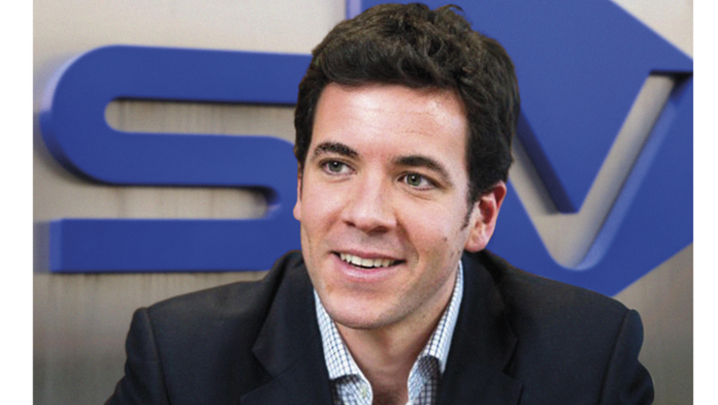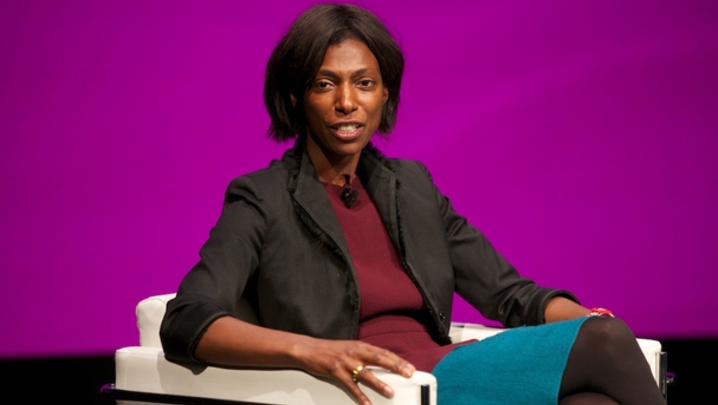With Team 56 – as SNP MPs call themselves – forming the third-largest party in Parliament, the impact on broadcasting in the UK is likely to be profound. And the effects are certain to spread beyond the BBC Charter debate.
The economist Jeremy Peat, a former BBC Scotland Governor and Trustee, observes that the general election outcome "represents a massive vote for change," requiring "not sticking plaster, but fundamental change." He adds: "We are miles away from a stable equilibrium."
John McVay, Chief Executive of Pact, warns: "The SNP doesn’t give up, it has become the single most effective force in British politics. It is democracy, but it is a monoculture.
"How much of the licence fee is spent in Scotland is central. The main issue is the BBC."
He points specifically to the SNP’s manifesto demand for an extra £100m of BBC funds to be spent in Scotland each year. The money would help to expand Scotland’s creative sector, according to the nationalists.
On 21 May, the SNP MPs selected the former BBC broadcaster John Nicolson (MP for East Dunbartonshire) as their culture, media and sport spokesperson from a strong band of eight former PRs, journalists and producers in the parliamentary party’s ranks.
These include independent producer Brendan O’Hara (Argyll and Bute) and one-time STV and GMTV producer Hannah Bardell (Livingston). The latter ran the constituency office of former SNP leader Alex Salmond for several years.
The BBC, faced with a new political landscape dominated by a Conservative Government and an assertive SNP, is pausing for reflection before publishing its so-called "green paper" on Charter renewal. Ofcom’s scene-setting public service broadcasting review is now due later this summer.
This pause is evident in Scotland, too. Opinion formers point out that the harsh criticism of BBC Scotland before and immediately after the independence referendum has eased off.
Paul Hutcheon, Investigations Editor of The Sunday Herald, says: "Hostilities have ceased."
This is, in part, because the general election proved to be so one-sided and, unlike the "referendum paranoia," not many questioned the objectivity of the TV coverage.
However, the SNP believes in delivering manifesto pledges. So, just a week after the election, Holyrood’s Devolution (Further Powers) Committee said that current plans to transfer more powers to the Scottish Government failed to meet either "the spirit or the substance" of last November’s hastily drawn-up Smith Agreement.
When David Cameron met SNP leader Nicola Sturgeon on 15 May, he said he was open to "sensible suggestions" and a review about devolving further powers. After the meeting, she announced: "What we are talking about is business taxes, employment legislation, the minimum wage and more powers over welfare."
But broadcasting, always high on Salmond’s agenda, seemed to have moved down the list of priorities. This is despite the fact that the SNP manifesto (silent on a separate Scottish Broadcasting Commission) said: "We’ll seek increased investment through BBC Scotland so that a fairer share of the licence fee is spent in Scotland, giving a £100m boost to our creative sector."
The manifesto also argued that the Scottish Government and Parliament "should have a substantial role in all stages in the review of the BBC Charter… with responsibility for broadcasting in Scotland transferring from Westminster to the Scottish Parliament….
"We believe the licence fee should be retained, with any replacement system, which should be based primarily on the ability to pay, in place by the end of the next BBC Charter."
The issue of the BBC will continue to niggle away ahead of the Scottish parliamentary election in 2016
Peat says that the issue of the BBC "will continue to niggle away" ahead of the Scottish parliamentary election in 2016. He believes that everything points towards the "devo max" model (that is, devolving maximum powers short of independence). So there will have to be an accommodation by the BBC and Westminster to embrace a federal model.
McVay suggests that, under devo max, reserve powers could be retained in the UK Government in London but, in practice, operational oversight and scrutiny of BBC Scotland would be granted to the Scottish Parliament.
Peat urges the BBC to do the brave thing and hold a swift inquiry to report before the 2016 election: "The BBC should set itself the task of looking objectively, transparently, with two or three external members, at whether it is producing a service that fits the bill in the context of an increasingly devolved Scotland."
Rob Woodward, Chief Executive of STV, suggests that, "arguably, the relationship we have with ITV is a template for the future [of BBC Scotland]."
STV argued to the Smith Commission that broadcasting should remain as a reserved power – in other words, still regulated by London-based Ofcom.
Woodward says: "We have sovereignty over our licence [from Ofcom] in Scotland; the vast majority of our schedule is provided by ITV. But if we want to make changes, we have full autonomy. So we have a very strong tie with ITV but, equally, we celebrate being Scottish. But I am not saying it is the only model."
He proposes that, as far as Scottish broadcasting goes, "an awful lot is working and working well.
BBC news is a central issue.
"The news is the big one," says Peat. "The news at 6:00pm and 10:00pm should be told through a different lens, of Scotland. The BBC in Scotland should aim to give Scottish viewers and listeners all the benefits of being part of the BBC, under a more devolved system."
He acknowledges that the BBC faces a big adjustment, and that Wales and Northern Ireland are not so far down the path of devolution: "It has to be special treatment for Scotland."
McVay agrees that the BBC now has an opportunity to engage with the SNP in the hope of landing a better Charter outcome. But, unless there is new cash, the demand for that extra £100m, if conceded, would have to come out of the BBC network budget. That would have a ripple effect across the entire UK.
For Stuart Cosgrove, Director of Creative Diversity at Channel 4 and based partly in Glasgow, the biggest issue is "how you do public service broadcasting in an increasingly federalist UK. The system is not self-evidently geared to this."
Cosgrove, who stands down later this year, takes the example of programme titles. The "British" in The Great British Bake Off and Britain’s Got Talent grates with perhaps 30% of Scots.
"British is not necessarily a word people here love," he continues. "The BBC’s prominent coverage of the Royal Family also runs up against a growing republican streak.
"Stories told through the myopic eyes of the London media… will continue to be a thorn in the side. For the BBC in Scotland… it is not a healthy place to be.
"The BBC should be worried. The licence fee is quite significantly vulnerable over the next 10 years."
Cosgrove points to STV’s growing success as a producer – it makes Shetland for BBC One - but notes that "not one major world TV format comes from Scotland."
Channel 4 is, however, creating five or six new Scottish posts in games and app development.
Woodward says that STV’s share of viewing for its daily news programmes, including the mandated, ITN-supplied national news, at 6:30pm and 10:00pm, is 25% against ITV’s 19% nationally.
This, he claims, is because they are presented in a Scottish manner, broadcasting to a nation, with Scottish advertising representing 15% to 20% of the commercial breaks.
In 2014, STV had 21% of peak-time audiences, compared with ITV1’s 20.7%, according to Barb.
STV is able to cross-promote its local TV shows off the back of flagship shows such as Coronation Street as "an integrated part of what we do," says Woodward.
Observers agree that STV has found a "proper equilibrium" by adding bespoke programmes, including the 10:30pm Scotland Tonight, which is described as popular without being frothy.
No one suggests that the BBC yet enjoys any such equilibrium. The SNP is set to have a strong presence on the Culture, Media and Sport Committee. The party wants to retain the licence fee, but it also wants a BBC Scotland that is accountable to Holyrood.
Whatever the outcome, Peat warns that it will be essential to protect the BBC’s independence from government – any government, wherever it is based.




